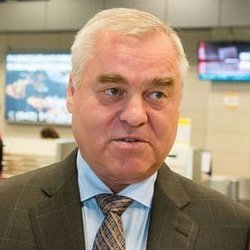‘23bn isn’t enough even for Aeroflot alone’ — airlines waiting for support
What problems the market of air travel has faced and what for it will allocate the president’s rubles
President of Russia Vladimir Putin instructed with expanding the list of anti-crisis measures and offered to allocate over 23 billion rubles to support affected airlines. Airlines welcomed this decision but noted that the money was obviously not enough to cover all their losses because of the cancellation of flights during the coronavirus pandemic. Not only the financial support is the case, representatives of transport companies say. Realnoe Vremya’s correspondent found out how Tatarstan players of the air travel market and how long they were ready to withstand under the conditions of restricted flights.
23-billion support
The coronavirus pandemic and its consequences have affected almost all sectors of the economy. This has reflected on the market of air travel to a great degree too. Countries’ borders are locked, the number of flights and tickets sold as well as passenger traffic have suddenly reduced.
Experts forecast that many regional air carriers won’t survive this crisis. Now companies have to pay salaries to workers in self-isolation and return money for tickets sold because of the cancellation of flights. As a state of emergency hasn’t been declared in the country, nobody has cancelled leasing payments. In a word, there are costs only with no revenue. Companies’ shares have considerably fallen too.
In his next speech on TV before a session with the government, President of Russia Vladimir Putin offered to support affected companies of the sector:
“We know that the sector of air travel is facing serious hardships today. As an emergency, urgent measure I consider it is necessary to allocate over 23 billion rubles to support aviation companies,” the head of the country said.
The money can be spent on leasing payments for aviation equipment, replenish working capital, pay salaries, pay for aircraft parking. It is unclear so far if airports will receive this money from airlines and how much. So Kazan International Airport claimed that they didn’t have this information at the moment.
“This money isn’t enough even for Aeroflot alone”
Managers of airlines are sure that the money allocated will obviously be not enough for tens of Russian companies.

At the same time, Trubayev hopes to receive his share from the money allocated. According to him, now the government is doing a big analytic job, asking affected airlines for data to distribute the supporting money allocated on the basis of this information. Board Chairman of Tulpar Aero Group Azat Khakim agrees with Trubayev too:
“23 billion — this money won’t be enough for Aeroflot alone,” head of Tulpar airline commented on the message for Realnoe Vremya’s correspondent. “This sum must be 50-10 times higher. Any support is always good, but the sum is tiny. The whole sector, in fact, has stalled, losses will be colossal. It is unclear when it ends. According to specialists’ forecasts, the beginning of flights, and only some of them, is supposed to be in early July.”
Enough for 3-4 months
Nowadays the planes of UVT Aero continue flying. However, the airline has had to cancel flights to Yaroslavl (twice a week) and partly to Nizhny Novgorod (night flight) because Strigino airport has stopped working at night. “This is why we have cancelled about 12 flights,” Trubayev says. Now the Kazan airline is operating flights to 35 destinations. It is up to 20-25 flights a day.
The airlines aren’t laying off their staff. Some of 380 UVT Aero employees are telecommuting, according to recommendations.
The situation in Azat Khakim’s company is more complicated. He noted that Tulpar, which specialises in charter and business charter flights, would receive nothing from these 23 billion. Mainly airlines operating regular passenger flights will receive this money.
“Everything has stalled in the company, there is no traffic, no orders. Nothing is flying, none of eight planes,” Azat Khakim complained.
Before the introduction of quarantine measures, Tulpar operated from 10 to 40 flights — depending on requests.

Airlines’ three problems
Apart from financial expenses, the airlines have faced other problems too. First of all, they have had problems with simulators. Plane pilots train abroad (mainly in the USA, some do in Germany) because Russia doesn’t have simulators. Helicopter pilots train in Italy.
“If a person doesn’t train on a simulator on time, he isn’t allowed to fly,” Azat Khakim explained. “We don’t know now how we will solve it. Even if flights are allowed, not all pilots can start flying.”
However, Trubayev noted that now this issue is trying to be resolved in Saint Petersburg: the northern capital is intending to renew the operation of simulators. But again, it is unclear how they will start working. UVT Aero found an “alternative, quite a legal option to train the crew” — airfield training.
The second difficulty is crew’s away medical examinations.
“All away check-ups have stalled now,” the head of Tulpar says. “The validity of simulators and medical check-ups were simply extended for 4-5 months abroad. Unfortunately, we don’t have such a decision so far.”
The third problem is the delivery of spare parts for planes from abroad.
“Our planes are foreign, this is why the spare parts are foreign. Some logistic companies have gone on holiday without pay, some have suspended operation, some are working. But this isn’t so critical at the moment, we are resolving this issue now,” Trubayev says.